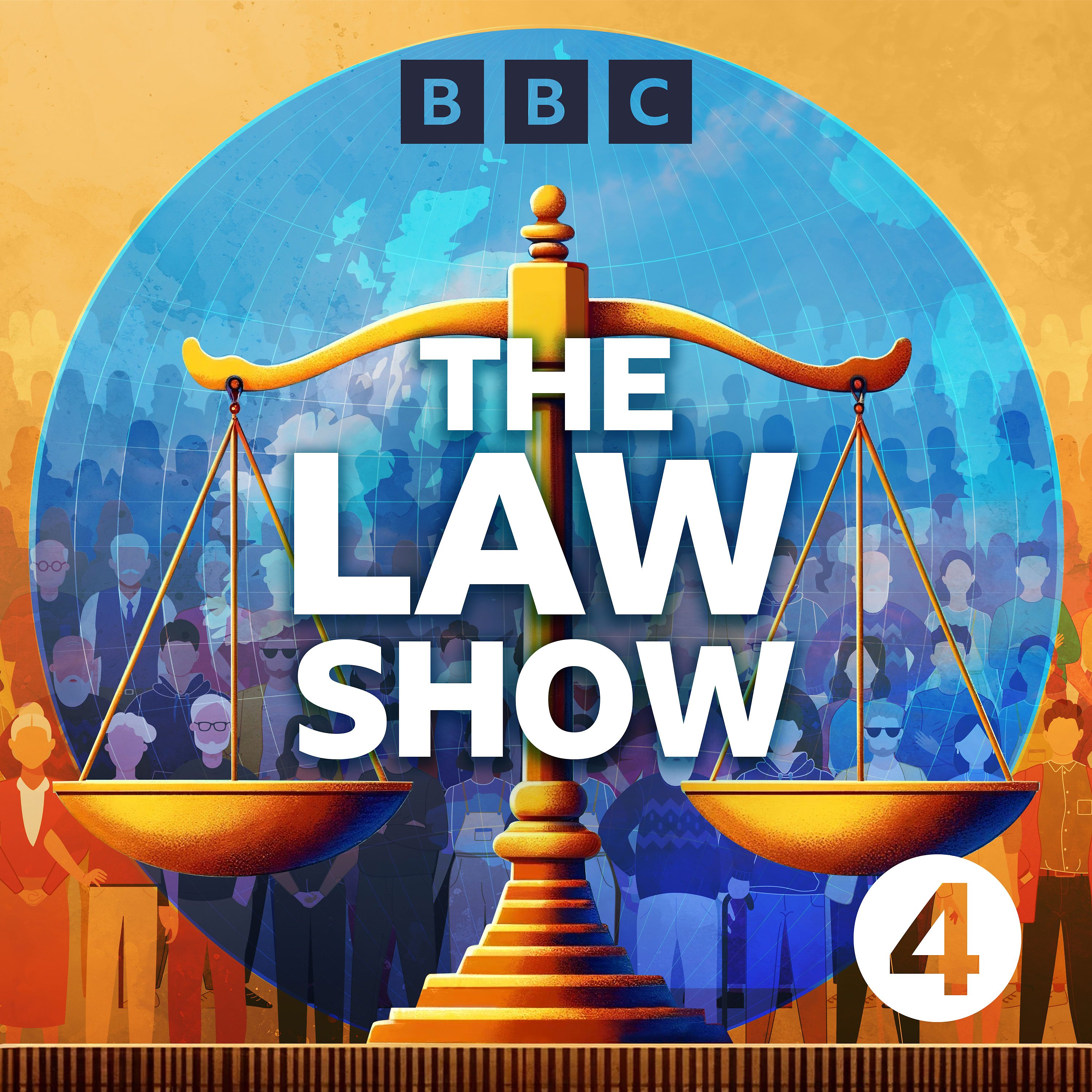

The Law Show
BBC Radio 4
Weekly conversation that will give you an in-depth understanding of the law stories making news and the legal decisions that could have a bearing on everyone in the UK. Whether it's unpicking a landmark legal ruling, explaining how laws are made or seeking clarity for you on a legal issue, The Law Show will be your guide.
Episodes
Mentioned books

Jun 4, 2019 • 28min
Brexit and the EU judiciary
What will happen to the European Union judiciary after Brexit? Eleanor Sharpston QC is a British member of the EU Court of Justice in Luxembourg. She argues it’s in the interests of both the UK and the EU for British judges to remain at the EU Court after Brexit - at least during a transitional period - because the UK will still be affected by its rulings.Also this week: transparency in the courts. When judges make decisions on sensitive personal and family issues, should their courts be open to all? Or does reporting put justice at risk? Joshua Rozenberg shines a light on this darker corner of the law.Producer: Neil Koenig

May 24, 2019 • 28min
Jailhouse Law
Joshua Rozenberg reports from a prison where inmates study legal issues alongside law students from Cambridge University. The academics who launched this ground-breaking project have found that both groups of students benefit by learning together.Plus, why four doctors have launched a Judicial Review of the Royal College of Physician’s assisted dying poll. Producers: Neil Koenig and Diane Richardson.

Mar 19, 2019 • 28min
Online Abuse and the Law
Joshua Rozenberg asks whether new laws are needed to protect online and social media users from abuse? Plus, in our latest look behind the scenes of courts large and small, we visit an immigration tribunal in central London. Joshua Rozenberg meets applicants who want to stay in Britain and judges who need an encyclopaedic knowledge of world affairs to decide whether they can remain.

Mar 5, 2019 • 28min
The Family Drug and Alcohol Court
We visit a problem-solving court in Coventry. Joshua Rozenberg speaks to judges, social workers and a mother whose drug addiction put her at risk of losing her children.
Producer: Neil Koenig

Feb 26, 2019 • 28min
The Supreme Court
Behind the scenes at the UK's top court: Joshua Rozenberg talks to staff, officials and the court’s most senior justices. Why do they allow some appeals and refuse even to hear others? How activist are they? And what effect did the Brexit challenge of 2016 have on the reputation of the judiciary?
Producer: Neil Koenig

Nov 20, 2018 • 36min
Peacemaking, New York style.
Judge Alex Calabrese can wield the big stick if he needs to. But peacemakers at the Red Hook Community Justice Centre in Brooklyn often find it more effective to pass round what they call a talking stick. Joshua Rozenberg finds out whether a Native American form of dispute resolution can be transplanted to a deprived corner of New York.Also, what the new director of public prosecutions for England and Wales thinks about screening jurors before they try rape cases. And one of the BBC team covering the Grenfell Tower Inquiry brings us up to date with the lines of evidence that have emerged so far.(Picture: Alex Calabrese, Acting Supreme Court Justice for the State of New York and Presiding Judge at Red Hook Community Justice Centre)Producer: Neil Koenig
Researcher: Diane Richardson

Nov 13, 2018 • 28min
How did the US Supreme Court become so powerful?
Joshua Rozenberg hears the story of the extraordinary case that rewrote the way America is governed - giving the Supreme Court the power to overrule Congress. He discovers what American prosecutors get up to behind the closed doors of the grand jury room. And he asks whether we should be screening jurors in England and Wales for bias before they are allowed to serve on rape trials.
Producer: Neil Koenig
Researcher: Diane Richardson

Nov 6, 2018 • 28min
Can the law rein in Amazon?
There is a possibility of a new legal challenge to the tech giants. Early last year, an unknown American law student published a scholarly article in a distinguished journal. Lina Khan argued that competition law – known in the United States as anti-trust law – could be used to rein in the activities of huge enterprises like Amazon. Other lawyers disagree with her reasoning - but the Federal Trade Commission is assessing the arguments. Joshua Rozenberg sounds out opinions in the United States. Also this week: should offences committed in childhood mean a criminal record for life?
Producer: Neil Koenig
Researcher: Diane Richardson

Oct 30, 2018 • 28min
Should a former soldier be tried without a jury?
Dennis Hutchings, a former soldier charged with attempted murder in Northern Ireland in 1974, says the UK Supreme Court should let him face trial by jury, rather than a hearing at a special court where a judge sits alone. Joshua Rozenberg speaks to Mr Hutchings and his lawyer. And in the first of a series of reports from the US, we investigate whether female lawyers face prejudice in the courtroom - including allegations of using tears to manipulate jurors. Producer: Neil Koenig
Researcher: Diane Richardson

Jun 26, 2018 • 28min
Facial Recognition Technology
Some police forces are using automated facial recognition technology to pick suspects out of a crowd. But is face mapping a valuable tool in the fight against serious crime or a new threat to our civil liberties? And does it work? Joshua Rozenberg investigates.Also in this week's programme...Do body-worn video cameras help police to deal more effectively with domestic violence incidents - or do they make matters worse?And the mysterious case of the "pernicious weed"...who should pay when the wrong kind of vegetation - such as Japanese knotweed - is found on railway lines?Producer: Neil Koenig
Researcher: Diane Richardson.


